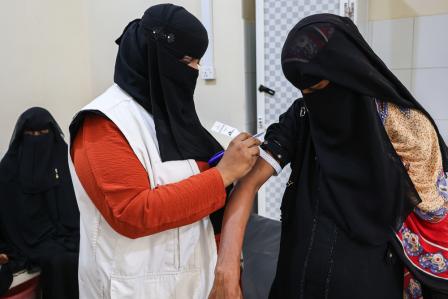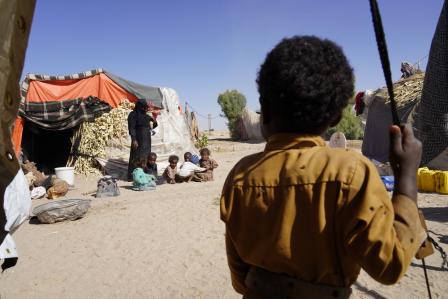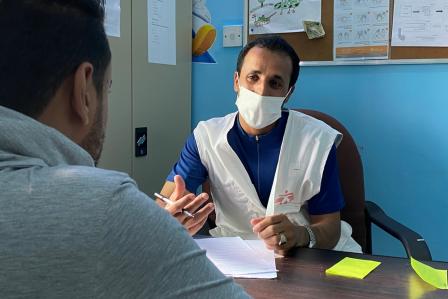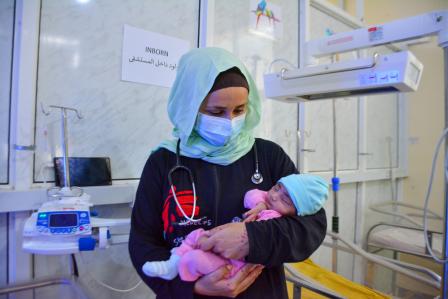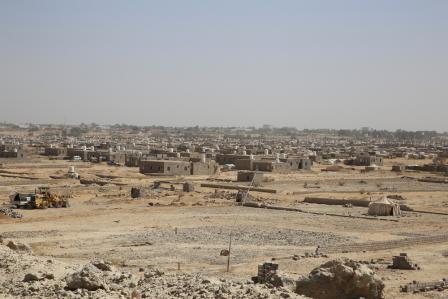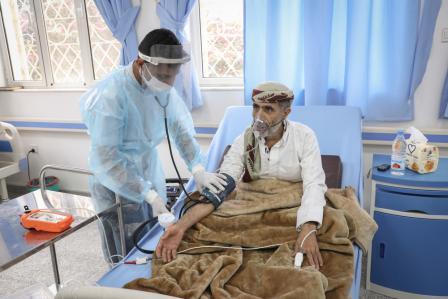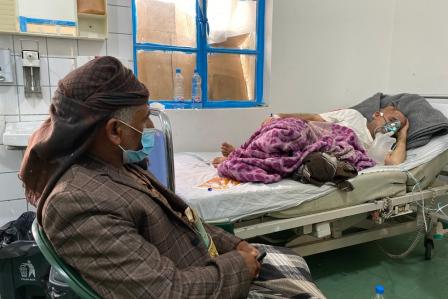Yemen: The struggle to access antenatal care in Al Qanawis
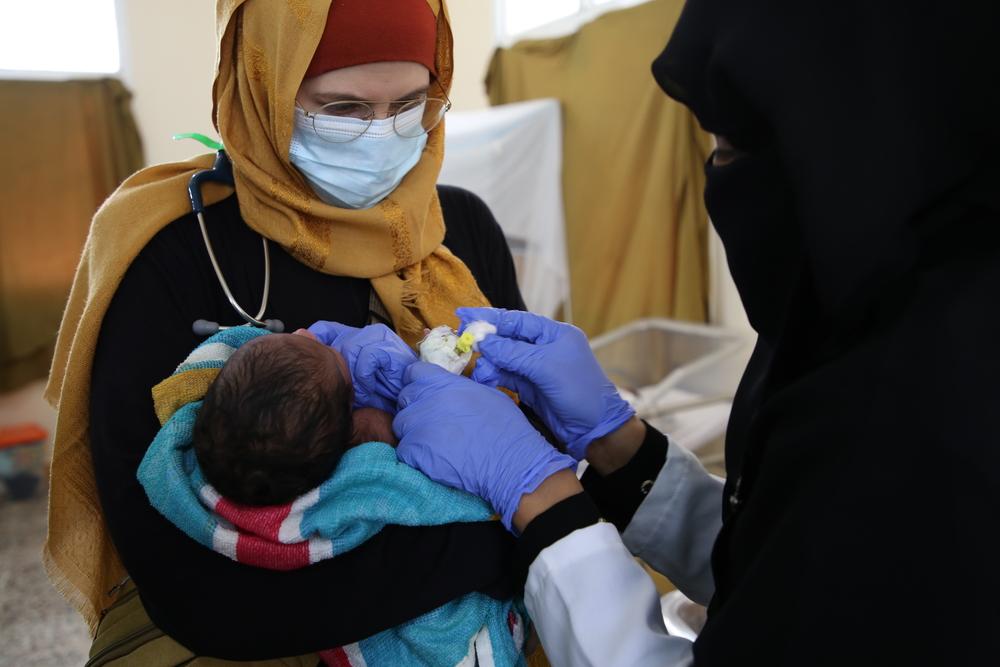
Nurse Activity Manager Astrid Opstrup with baby Elwah, who was admitted to the neonatology unit with a fever and a suspected infection. © MSF/Karin Ekholm
Like most other women in her village, Fatima, 17, had no access to antenatal care during her pregnancy. She recently gave birth to her second child in the Doctors Without Borders/Médecins Sans Frontières (MSF) clinic in Al Qanawis, in the Hodeidah governorate of northwestern Yemen, one of nearly 200 women that Doctors Without Borders assisted during childbirth in March.
The ongoing, six-year conflict is the backdrop for the lack of basic healthcare available to large chunks of the Yemeni population. The war has decimated the economy, destroying families’ sources of income and leading to spiralling fuel and food costs. “Life has become very difficult because of the war,” says Fatima. “There are no jobs and prices for food and fuel have increased. I had heard about Doctors Without Borders – that the care is good and free of charge. We can’t afford the private hospitals.”
Fatima and her husband paid a week’s salary for their transport to get to the Doctors Without Borders clinic. She arrived at the hospital with a fever, and when her baby girl was delivered she was admitted to the neonatology ward with an infection. Fatima developed jaundice and was treated with phototherapy. Doctors Without Borders’s doctors routinely see such cases, many of which might have been preventable through primary healthcare services at a local level.
“With little money to pay for transport to seek medical help, women have no choice but to wait until they are in urgent need of care to travel to the clinic. As a result, many women arrive very late, with complications that can sometimes prove fatal for their babies," he continued.
Availability of basic healthcare at the local level would also support women with family planning choices. With families struggling to feed their existing children, and without proper antenatal care available, the prospect of another pregnancy and delivery is a daunting one for many women, and Doctors Without Borders doctors say that they have seen evidence of abortion attempts, which can be extremely dangerous. Women also ask for tubal ligation at the clinic, something that can only be performed for medical reasons.
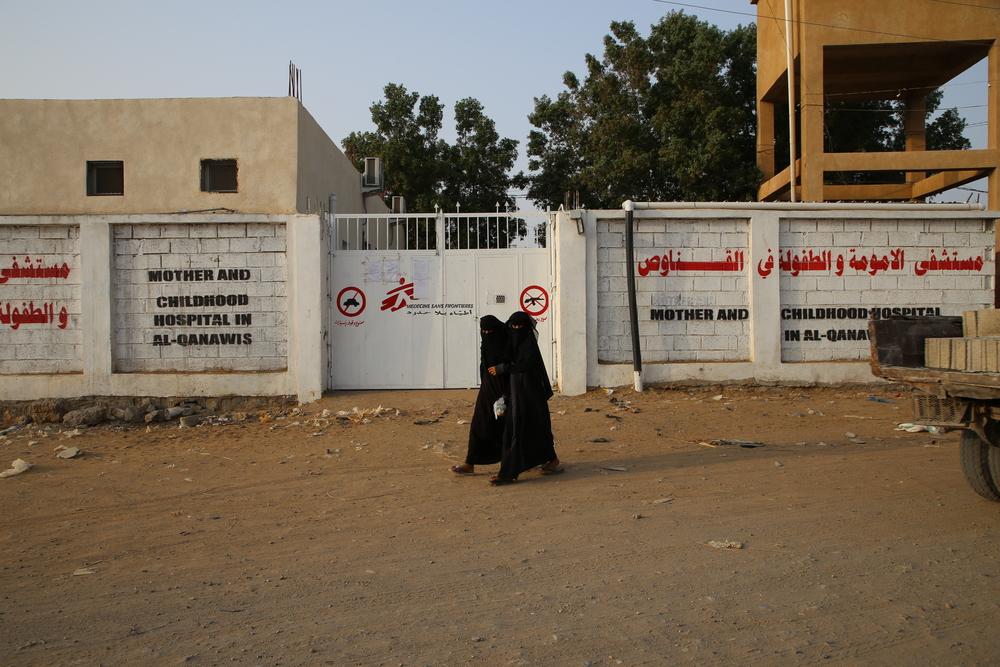
Al Qanawis Mother & Child Hospital in the Hodeidah governorate of northwestern Yemen. © MSF/Karin Ekholm
The number of women seeking help at the Al Qanawis clinic has been rising steadily since it opened in late December 2020. There is a clear need for the services that Doctors Without Borders provides, but women are often unable to stay for the full period of monitoring and treatment.
Fatima, like so many others, wished to leave the hospital early. While this went against the advice of the doctors, she explained that her 18-month old son was waiting for her at home, and was discharged with a course of antibiotics to continue treatment at home. Until women can access free, safe healthcare at a local level, they will continue to face additional and preventable dangers during pregnancy and childbirth.
